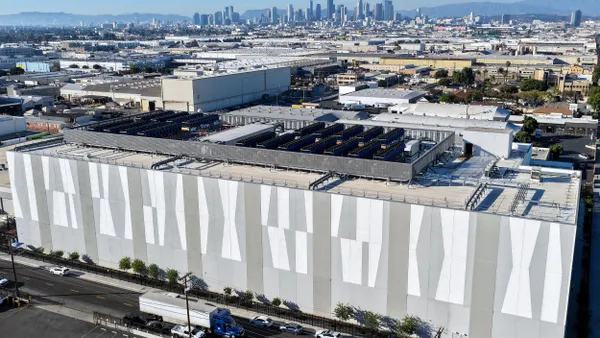Dive Brief:
- Con Edison announced a $1.5 billion energy efficiency initiative during its Monday annual meeting, including customer incentives for ground and air-source heat pumps.
- The new investment would constitute a tripling of the New York-based utility's investment in its energy efficiency programs by 2025.
-
Incentives for heat pumps have a lot of potential to reduce emissions and lower utility bills for families, Daniel Bresette, executive director of the Environmental and Energy Study Institute (EESI), told Utility Dive in an email.
Dive Insight:
Con Edison Chairman and CEO John McAvoy told shareholders the company is committed to clean energy alternatives and an aggressive expansion of energy efficiency programs, during the company’s first virtual-only annual meeting due to the ongoing COVID-19 pandemic.
“I believe one of the keys to rebuilding our communities and boosting the economy is maintaining our focus on clean energy,” McAvoy said in a company statement.
Con Edison will triple its energy efficiency programs with an investment of more than $1.5 billion by 2025, helping customers reduce their reliance on natural gas with incentives for ground and air-source heat pumps.
“Energy efficiency is one of the most effective ways of reducing greenhouse gas emissions while saving money; and heat pump technology, in particular, has improved considerably over the years,” Bresette said.
Con Edison will also continue its support for electric vehicle adoption, McAvoy said.
Staff at the New York State Department of Public Service (DPS) recommended the state’s investor-owned electric utilities be required to incorporate EV-charging infrastructure into their capital planning budgets. DPS staff also recommend in a January 13 white paper that the Public Service Commission establish a statewide “make-ready program” that would provide incentives for electric vehicle charging stations.
Utilities and public service commissions have taken a “good first step” toward electric vehicle adoption, Kathy Harris, clean vehicles and fuels advocate for the Natural Resources Defense Council, told Utility Dive. Challenges to adoption include awareness and load management, according to Harris.
“Utilities need to consider how to integrate electric vehicles into their grids,” Harris said. Utilities also need to design rates to encourage off-peak EV charging. Otherwise, drivers will charge their vehicles as soon as they reach their destination, she said.
“One barrier to electric vehicle adoption is a lack of consumer awareness,” Harris said. Utilities have an opportunity in their constant communication with customers to provide information about EVs and the availability of charging stations.
“Accelerating the adoption of electric vehicles is in the interest of everyone, including utilities,” EESI’s Bresette said.
“Basically, EVs are four-wheeled batteries and can serve as storage to help utilities manage supply and demand,” according to Bresette. “We are working on on-bill financing programs for EVs with utilities in other parts of the country," he added.
McAvoy also told shareholders that letting utilities own large-scale solar and wind farms would help New York City and State achieve their climate goals. New York State’s Climate Leadership and Community Protection Act (CLCPA) mandates moving to 70% renewable energy by 2030 and cutting greenhouse gas emissions 85% by 2050.
Con Edison’s Clean Energy Businesses owns and operates major solar farms outside of New York, operating 122 renewable projects across 19 states, according to the company’s 2019 annual report. Utilities in New York State are barred by regulation from owning renewable energy facilities within the state.














